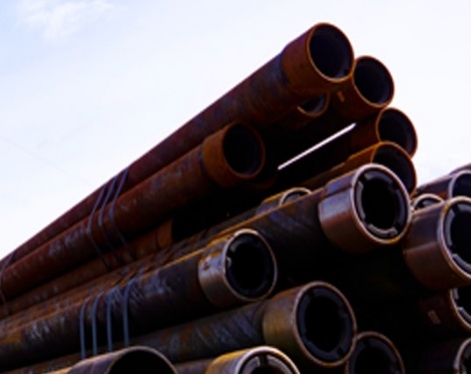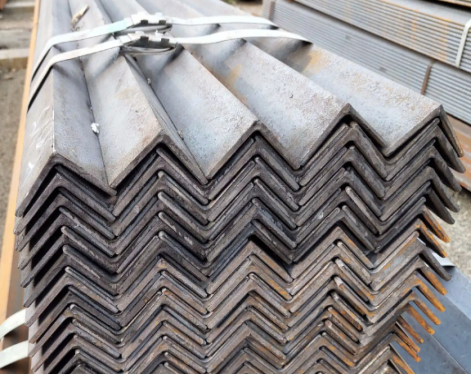As core equipment for oil and gas exploration and development, OCTG pipes (oil-specific tubular goods) are designed and engineered to perfectly match complex downhole conditions. With their three core characteristics of strong adaptability, high reliability, and full-process compatibility, they have become an irreplaceable key pipe material in oil and gas production. Their specific advantages can be summarized from the following perspectives:
Resistant to extreme working conditions: suitable for underground high pressure, high temperature and high corrosion environment
OCTG pipes are specially designed to meet the "three highs" characteristics of oil and gas wells (high pressure, high temperature, and high corrosion):
1. High-pressure tolerance: Made of high-grade steel (such as P110 and Q125), the pipe has a tensile strength of over 800MPa and can withstand downhole pressures of 30MPa or even higher, preventing leakage due to pressure breakthrough.
2. High temperature stability: Through special heat treatment process, it can still maintain stable mechanical properties in the deep well environment of 150-200℃, and will not cause strength loss or deformation due to high temperature;
3. Strong corrosion resistance: Anti-sulfur steel (super 13Cr), duplex steel (2205) and other corrosion-resistant materials can be selected, or the inner wall can be coated with an anti-corrosion coating to resist corrosion from H₂S, CO₂, and high-salt formation water, reducing the risk of rust and perforation of the pipe body.

Reliable structure: ensuring safety throughout the mining process
The structural design of OCTG pipes focuses on "failure prevention and strong sealing" to meet the needs of different links such as drilling, cementing, and oil production:
Mainly seamless forming: Most OCTG pipes are manufactured using seamless technology, with no potential weak points in welds, and are more resistant to external extrusion and tensile stress. This is especially true when drill pipes and casings need to withstand formation extrusion or drilling torque, making weld cracking less likely to occur.
Specialized threaded joints: Equipped with API standard or customized sealing threads (such as BTC and VAM TOP), they have high thread precision and excellent sealing performance, effectively isolating downhole fluids and preventing leakage at the joints, while also adapting to rapid installation requirements.
Local reinforcement design: For example, the drill pipe joint is thickened to improve wear resistance; the casing end is given a rigid structure to prevent collision and deformation when going down the well, thereby extending the service life.
Full process adaptation: covering all aspects of oil and gas production
OCTG pipe is not a single pipe material, but a series of products including "drill pipe, casing, tubing, etc.", which can meet the needs of the entire mining process in one stop:
Drill pipe: transmits drilling power, has both anti-torque and anti-impact properties, ensures stable power transmission during drilling, and is suitable for different well depths (from shallow wells of 1,000 meters to deep wells of 10,000 meters);
Casing pipe: It is run into the wellbore during cementing to reinforce the well wall and isolate fluids from different formations, thus preventing the well wall from collapsing or formation water from entering the production layer.
Oil pipe: connects downhole oil production equipment with the ground, transports oil and gas to the ground, has a smooth inner wall and low resistance, and can withstand corrosive components in oil and gas to ensure transportation efficiency.
Controllable performance: Customizable on demand, balancing safety and cost
OCTG pipes allow for flexible adjustment of performance and cost based on well conditions, achieving “precise fit”:
Material customization: Ordinary carbon steel (J55, N80) can be used for low-corrosion shallow wells to control costs; corrosion-resistant alloy materials can be used for highly corrosive acidic wells to ensure long-term safety and avoid the additional investment of frequent pipe replacement;
Flexible specifications: Pipe diameter and wall thickness can be customized as needed (e.g., casing diameter 4-13¾ inches, tubing 2-4½ inches), adapting to different wellbore sizes and transportation requirements;
Quality Traceability: We adhere to strict standards such as API 5CT and API 5D. Each batch of pipes comes with a material report and performance test data, ensuring quality control and reducing the risk of production stoppages due to pipe problems during the mining process.
Read more: OCTG Pipe Production Process
Resistant to extreme working conditions: suitable for underground high pressure, high temperature and high corrosion environment
OCTG pipes are specially designed to meet the "three highs" characteristics of oil and gas wells (high pressure, high temperature, and high corrosion):
1. High-pressure tolerance: Made of high-grade steel (such as P110 and Q125), the pipe has a tensile strength of over 800MPa and can withstand downhole pressures of 30MPa or even higher, preventing leakage due to pressure breakthrough.
2. High temperature stability: Through special heat treatment process, it can still maintain stable mechanical properties in the deep well environment of 150-200℃, and will not cause strength loss or deformation due to high temperature;
3. Strong corrosion resistance: Anti-sulfur steel (super 13Cr), duplex steel (2205) and other corrosion-resistant materials can be selected, or the inner wall can be coated with an anti-corrosion coating to resist corrosion from H₂S, CO₂, and high-salt formation water, reducing the risk of rust and perforation of the pipe body.

Reliable structure: ensuring safety throughout the mining process
The structural design of OCTG pipes focuses on "failure prevention and strong sealing" to meet the needs of different links such as drilling, cementing, and oil production:
Mainly seamless forming: Most OCTG pipes are manufactured using seamless technology, with no potential weak points in welds, and are more resistant to external extrusion and tensile stress. This is especially true when drill pipes and casings need to withstand formation extrusion or drilling torque, making weld cracking less likely to occur.
Specialized threaded joints: Equipped with API standard or customized sealing threads (such as BTC and VAM TOP), they have high thread precision and excellent sealing performance, effectively isolating downhole fluids and preventing leakage at the joints, while also adapting to rapid installation requirements.
Local reinforcement design: For example, the drill pipe joint is thickened to improve wear resistance; the casing end is given a rigid structure to prevent collision and deformation when going down the well, thereby extending the service life.
Full process adaptation: covering all aspects of oil and gas production
OCTG pipe is not a single pipe material, but a series of products including "drill pipe, casing, tubing, etc.", which can meet the needs of the entire mining process in one stop:
Drill pipe: transmits drilling power, has both anti-torque and anti-impact properties, ensures stable power transmission during drilling, and is suitable for different well depths (from shallow wells of 1,000 meters to deep wells of 10,000 meters);
Casing pipe: It is run into the wellbore during cementing to reinforce the well wall and isolate fluids from different formations, thus preventing the well wall from collapsing or formation water from entering the production layer.
Oil pipe: connects downhole oil production equipment with the ground, transports oil and gas to the ground, has a smooth inner wall and low resistance, and can withstand corrosive components in oil and gas to ensure transportation efficiency.
Controllable performance: Customizable on demand, balancing safety and cost
OCTG pipes allow for flexible adjustment of performance and cost based on well conditions, achieving “precise fit”:
Material customization: Ordinary carbon steel (J55, N80) can be used for low-corrosion shallow wells to control costs; corrosion-resistant alloy materials can be used for highly corrosive acidic wells to ensure long-term safety and avoid the additional investment of frequent pipe replacement;
Flexible specifications: Pipe diameter and wall thickness can be customized as needed (e.g., casing diameter 4-13¾ inches, tubing 2-4½ inches), adapting to different wellbore sizes and transportation requirements;
Quality Traceability: We adhere to strict standards such as API 5CT and API 5D. Each batch of pipes comes with a material report and performance test data, ensuring quality control and reducing the risk of production stoppages due to pipe problems during the mining process.
Read more: OCTG Pipe Production Process









